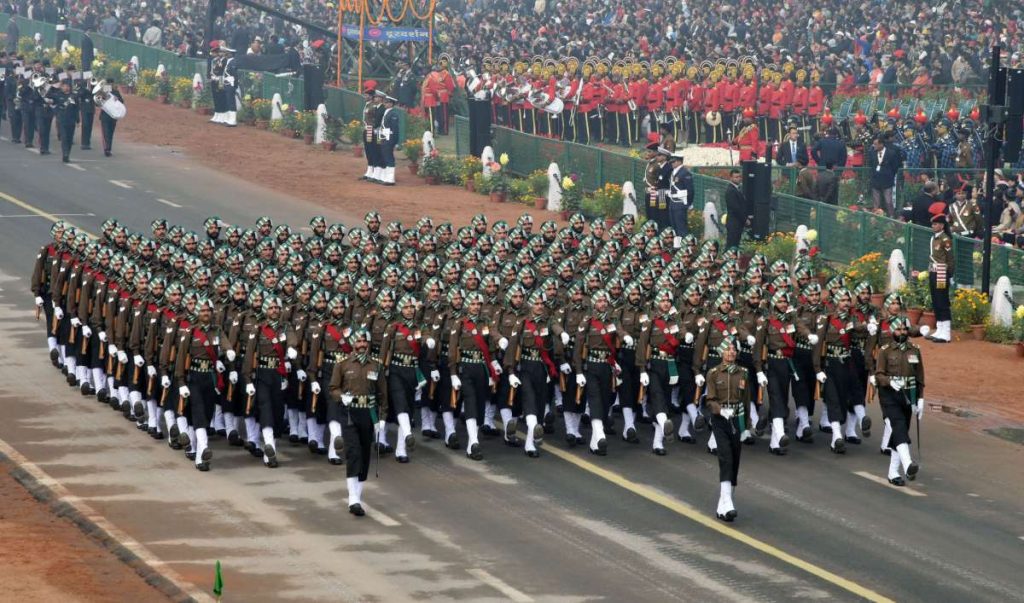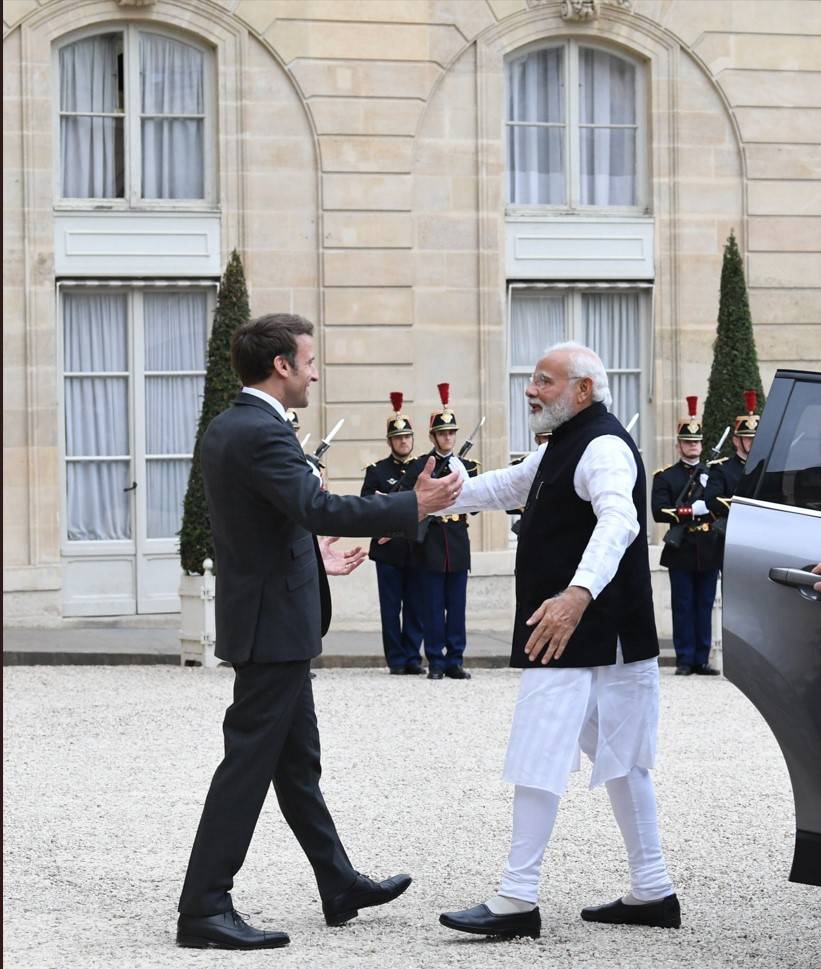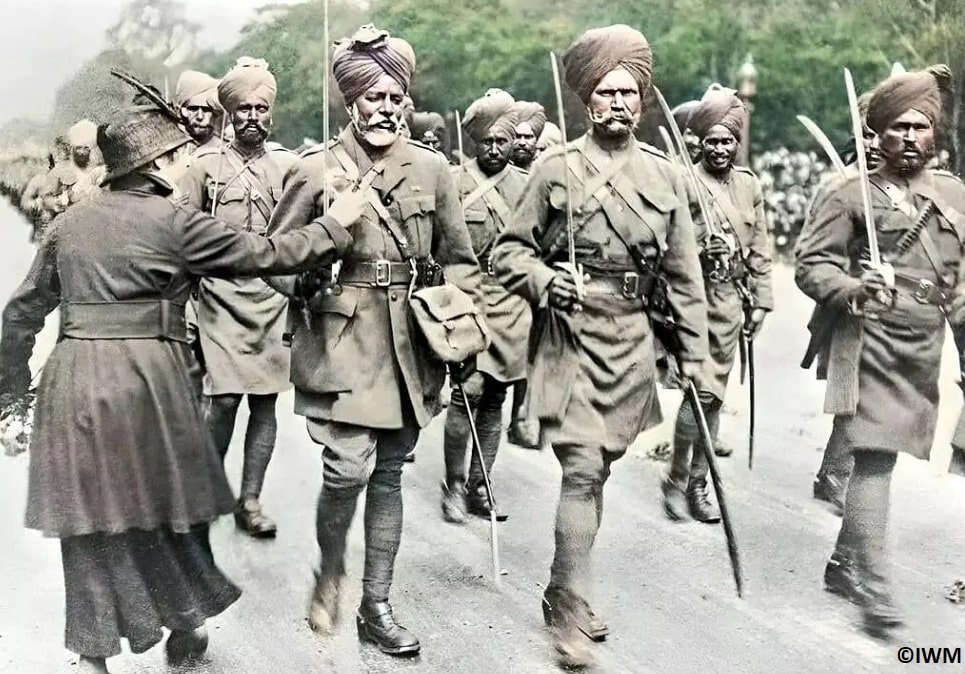The soldiers from the Punjab Regiment are poised to embark on a momentous march in Paris, marking a historic moment after 107 years. This extraordinary occasion, reminiscent of the past, highlights the enduring ties between India and France.
The absence of Indian soldiers in the 2017 Hollywood film “Dunkirk” caused disappointment among Indians, particularly those with an interest in military history, Khalsa Vox reported.
The film, based on the Battle of France and the evacuation of Allied soldiers from Dunkirk during World War II, failed to acknowledge the role of Indian soldiers from the British Indian Army in both World Wars.

Despite the oversight by Western media, an iconic black-and-white photograph emerged during the release of “Dunkirk,” capturing a French woman pinning a flower on a Sikh (Indian) soldier.
This image, dating back to the First World War, symbolizes the contribution of Indian soldiers, possibly from the Sikh Regiment, in saving France from German occupation in 1916.
Now, more than a century later, history comes full circle as soldiers from the Punjab Regiment, now part of the Indian Army, prepare to embark on a journey to France. They will participate in the Bastille Day parade in Paris, scheduled to take place on July 14.
This year’s parade holds even greater significance as Indian Prime Minister Narendra Modi has been invited as the Guest of Honour on the French National Day.
“The Bastille Day parade will feature a 269-member tri-services contingent from the Indian Armed Forces marching alongside their French counterparts,” said Colonel Sudhir Chamoli, spokesperson for the Indian Army.

The visit serves as a testament to the enduring bond between the Indian and French armies, dating back to World War I.
During the First World War, over 1.3 million Indian soldiers participated, with nearly 74,000 losing their lives and 67,000 sustaining injuries.
Notably, Indian troops demonstrated their bravery and made significant contributions to the war effort on French soil. Their valor and sacrifices played a crucial role in securing victory against the enemy.
The Punjab Regiment has participated in both World Wars and various post-independence operations. In World War I, the Punjab Regiment received 18 Battle and Theatre Honours, fighting in locations such as Mesopotamia, Gallipoli, Palestine, Egypt, China, Hongkong, Damascus, and France.
Their involvement in France included an offensive near Neuve Chapelle in September 1915, earning them the Battle Honours “Loos” and “France and Flanders”, Khalsa Vox reported.
During World War II, a staggering 2.5 million Indian soldiers made notable contributions in various theatres of the war, including France. The Punjab Regiment, among others, earned 16 Battle Honours and 14 Theatre Honours, solidifying their reputation as valiant fighters.
Accompanying the Indian contingent is the Rajputana Rifles Regiment Band, representing the seniormost rifle regiment of the Indian Army. The Rajput Regiment has a long and illustrious history, having participated in numerous battles across the world.
Their contributions during World War II were particularly notable, and they were awarded six Victoria Crosses prior to India’s independence. The regiment’s band was established in 1920 in Nasirabad, Rajasthan, during the British era, Khalsa Vox reported.
As history’s wheel takes another momentous turn, the resolute soldiers of India take immense pride in marching through the vibrant streets of Paris. Their footsteps echo a legacy of unwavering bravery, indomitable valor, and the spirit of sacrifice shared between nations.
With their distinguished presence in the illustrious Bastille Day parade, the esteemed Punjab Regiment becomes an emblematic symbol of the enduring friendship etched between India and France.
This remarkable display not only pays homage to their intertwined military history but also reinforces the profound bond that binds these nations together.
ALSO READ: Macron pushes for more ‘independent’ Europe, Free from US

